Communications Minister Datuk Fahmi Fadzil has announced that Malaysia will soon require all social media platforms to verify its users through eKYC (electronic Know Your Customer) verification.
The move is intended to ensure a safer online environment by ensuring all social platforms do not allow children under 13 years of age to register their own account.
The Minister said the implementation aims to protect children online and to ensure that the community guidelines set by the platforms are properly enforced. On top of that, the ID verification process is said to be crucial to curb online scams and harmful content including gambling and fake advertisements.
As reported by Bernama, he said “When I met representatives from social media platforms last month, I made it clear that Malaysia will make identity verification mandatory, especially to prevent children below 13 from having accounts.”
He added that the exact timeline will be presented to the Cabinet before making an announcement and the Malaysian Communications and Multimedia Commission (MCMC) will hold a meeting with social media companies next week to discuss immediate steps towards implementing the requirement.
Notably, Fahmi said that many platforms have been misused by criminals for scams and he shared that 78% of scam-related content taken down came from Facebook.
The full details of eKYC verification have not been revealed yet but this could possibly mean that all users must verify their social media accounts via their MyKad or MyDigital ID.
However, the move to require eKYC has faced criticism as it could risk eroding rights of citizens. Aliran has called upon the government to halt any hasty imposition of ekYC mandates and to consider other ways to tackle online scams, fraud and protection of children that does not threaten human rights.
Meta, Google and X still are not licensed by Malaysia’s Social Media Regulation
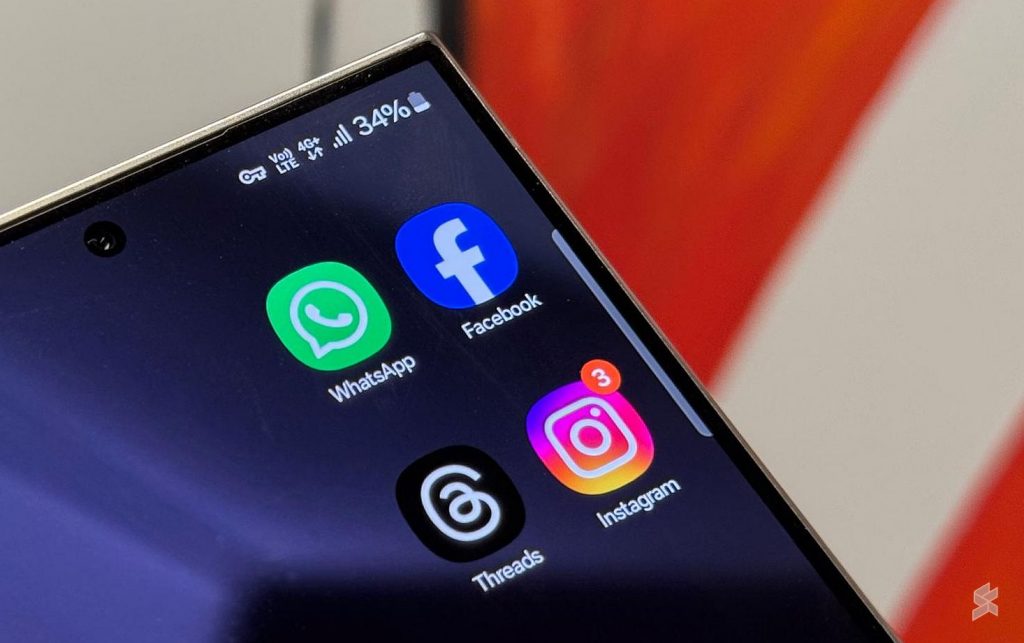
It is worth pointing out that the top social media platforms such as Facebook, Instagram, WhatsApp, TikTok, WeChat and YouTube are not based in Malaysia. To curb online harms including cyber bullying, Malaysia introduced its social media regulation which took effect from 1st January 2025.
Under the regulation, all social media and messaging platforms with at least 8 million registered users in Malaysia must apply for an Applications Service Provider Class licence with the MCMC.
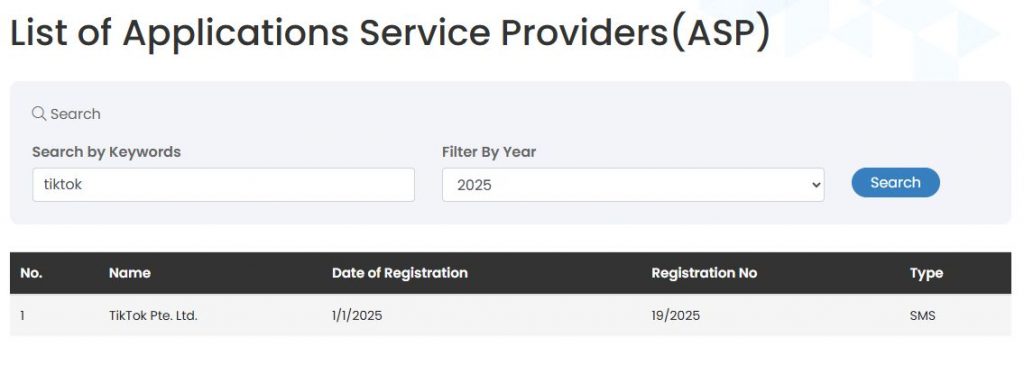
When we did a search on MCMC’s ASP register, only TikTok, Telegram and WeChat have obtained the required ASP licence. The other platforms such as Facebook, Instagram, WhatsApp, YouTube and X are not on the list.
It has been more than 10 months since the regulation was introduced but platforms such as Facebook continue to operate illegally without the required ASP licence. As we’ve reported previously, Facebook has repeatedly allowed fake and scam ads on its platform.
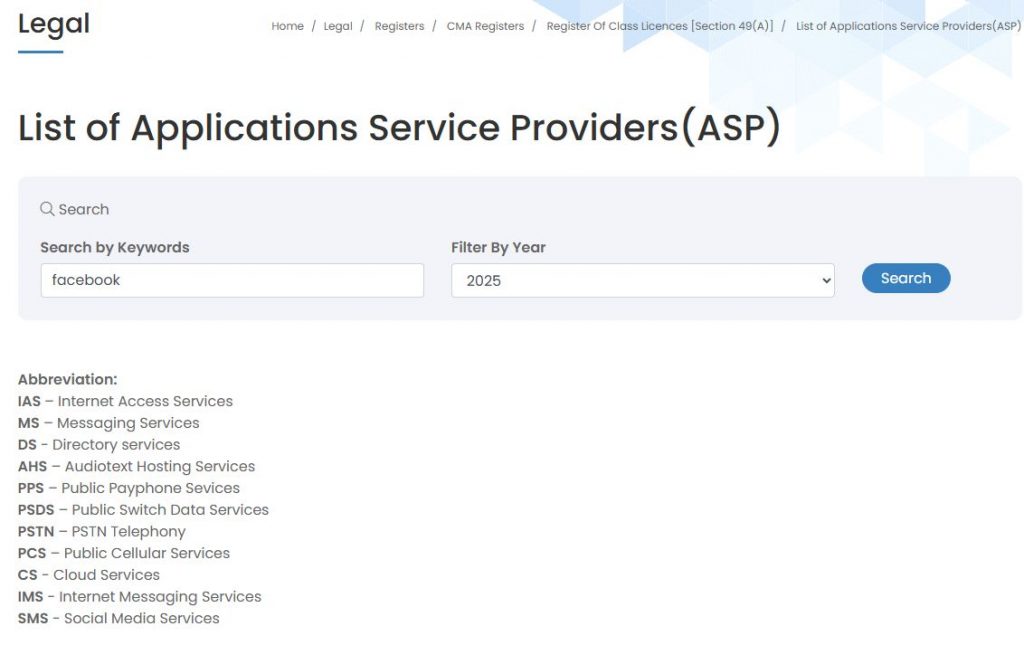
According to the MCMC, applicable platforms that continue to operate without a licence from 1st January 2025 can be slapped with fines under Section 126 of CMA 1998. This may include fines of up to RM500,000 or imprisonment of up to 5 years, or both.
Illegal platforms can be slapped with further fines of RM1,000 per day during which the offence is continued after conviction.
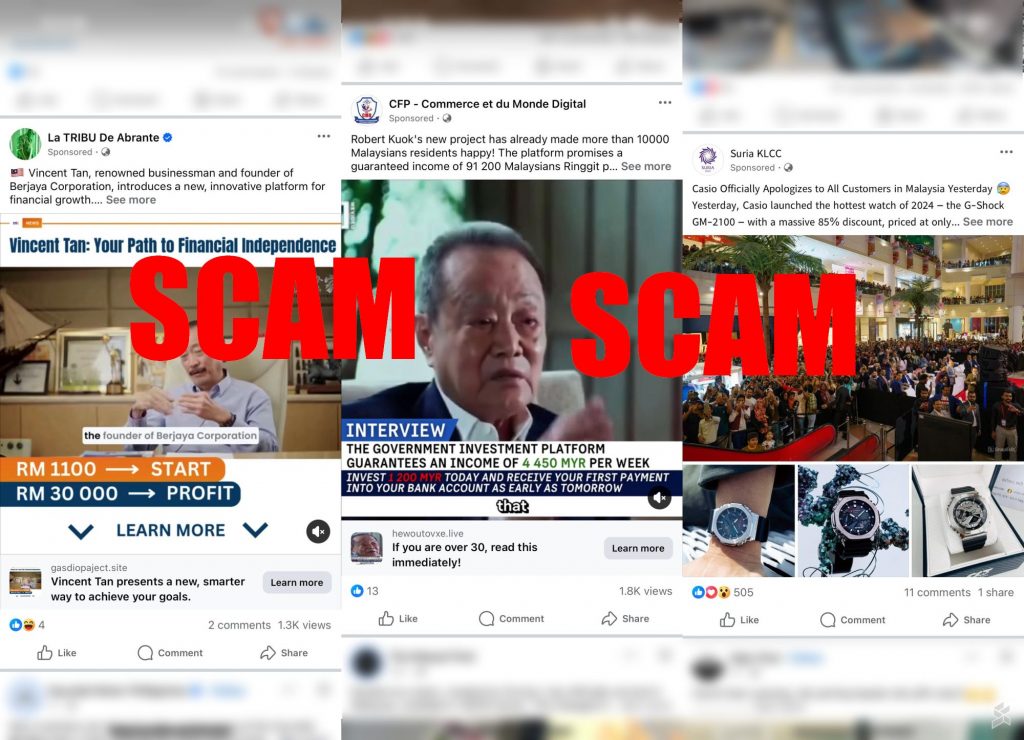
However, we have yet to see any action being taken by the government and regulators against non-compliant platforms. As a result, Malaysians are still getting screwed by scam ads and it appears that there’s lack of enforcement to ensure online safety of Malaysians.
If these foreign social media platforms such as Facebook continue to defy Malaysia’s regulations and licensing requirements, how can we expect them to comply with Malaysia’s mandatory eKYC implementation?
Fahmi had said previously that the government has no intention to ban social media platforms that have not obtained their required licence after 1st January 2025.
Let’s start eKYC implementation with advertisers
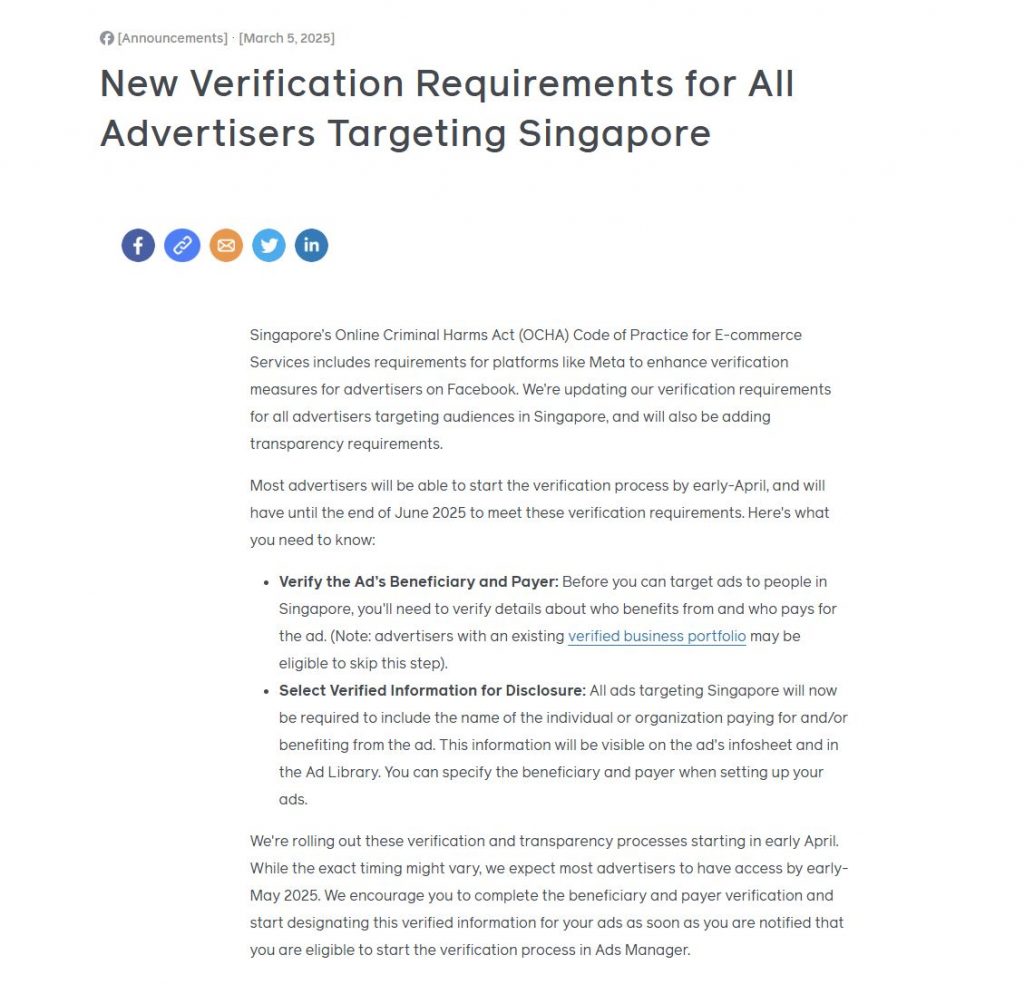
If Malaysia wants to enforce eKYC, the focus should be on the advertisers, not the users. Since the majority of scam ads on social media are typically approved without due diligence, Malaysia could follow Singapore’s example of requiring mandatory verification of advertisers under the Online Criminal Harms Act (OCHA).
Meta seems to able to comply with Singapore government’s directive as they have issued a notice that they are updating verification requirements for all Facebook advertisers targeting audiences in Singapore. The social media platform has also added transparency requirements to disclose the name or the individual or organisation paying for the ads.
If the advertiser is not verified with local ID or SSM documents, social media platforms shouldn’t allow them to run any ads targeting Malaysian users. This would significantly cut down the number of scam ads on the platforms.
[ SOURCE ]
Fahmi says Social Media Platforms must require eKYC verification but here’s the problem
News Reports PH
0 Comments